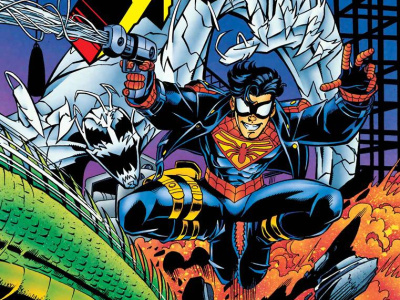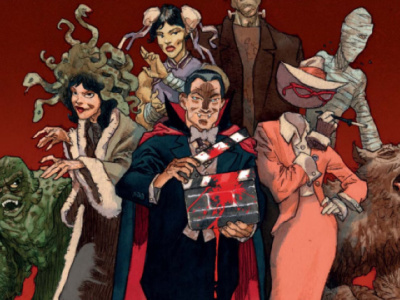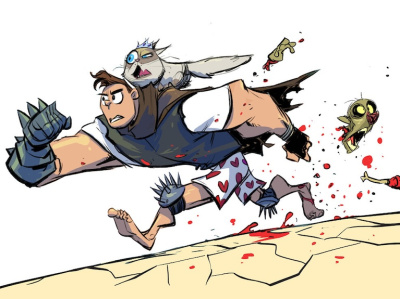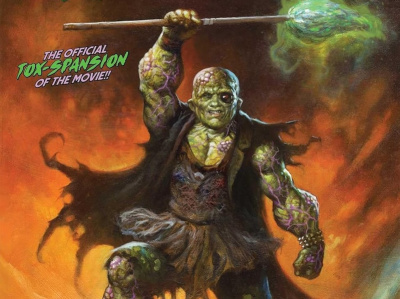Wayne's speech to comic retailers at the Comic Book Expo in San Diego was not directed entirely at Marvel. He also ran through a list of programs that DC was implementing to help retailers, such as the inclusion of a CD-Rom with information about and images from the extensive line of DC trade paperbacks in every copy of a new edition of Sandman: Preludes and Nocturnes. DC is also planning to work with a large number of retailers to figure out the most efficient way to use overships to increase sales without burdening retailers. In addition DC will be offering retailers a 3% discount for ordering DC Direct toys and merchandise in case quantities.
Earlier in the keynote address for the Expo, Marvel Editor-in-Chief Joe Quesada took a very philosophical approach as he talked about the need to break the rules and conventions of the genre, and the need to improve the self-image of comic fans and the comic business in general. Quesada also decried some of what he termed industry 'myths' such as the concept that what held the industry back was a lack of distribution. In an example that angered some retailers Quesada cited Pok?mon cards as a product that, a year ago, was so hot that it didn't require any formalized distribution at all. While some retailers took this example as proof that Marvel's 'no overprints' policy was an attempt to create a speculative boom like the Pok?mon phenomenon, it is not at all clear that this was the context that Quesada wished to invoke. Creating a speculative boom is not the only way to fuel interest in comics. Marvel has raised editorial quality and undertaken a number of projects, such as the Wolverine Origins saga, that should create interest on their own, and so far at least, the Marvel 'no overprints' policy has not created any wave of speculation in comics.
While Quesada kept his keynote speech very general and positive, Bob Wayne's criticisms of Marvel were sharp and to the point. Wayne asked a series of rhetorical questions starting by wondering how a company could afford to maintain an inventory of expensive trade paperbacks, but not be able to keep an inventory of cheaper periodicals. Next he chided Marvel for publishing books like the Ultimate Marvel Magazine, the first issues of which were available only for the newsstand market (see 'Ultimate Marvel Magazine'). Then Wayne alluded to the problems Marvel had with the Marvel Boy trade paperback collection, in particular with the double page spreads. Wayne contrasted this with DC's trashing of several print runs because the books when printed did not meet the publisher's standards. Finally Wayne alluded to stories about Marvel comics appearing on newsstands before they appear in comic shops (see 'Newsstand Editions of Marvels Out Before Directs'). Even detailing the retailer programs and services that DC provides for dealers carries an implied criticism of Marvel, which currently does not field very many programs for retailers.
For a full transcript of both speeches, see Newsarama.







